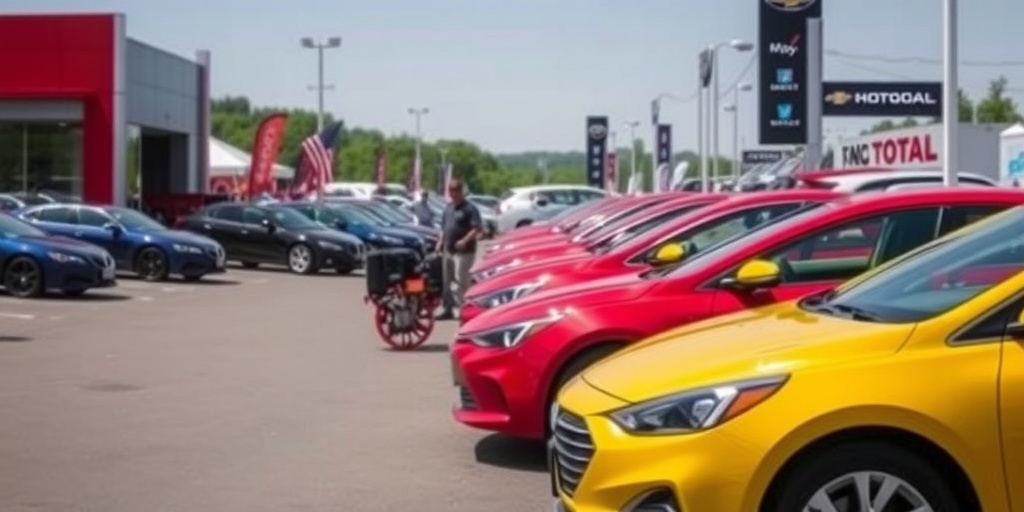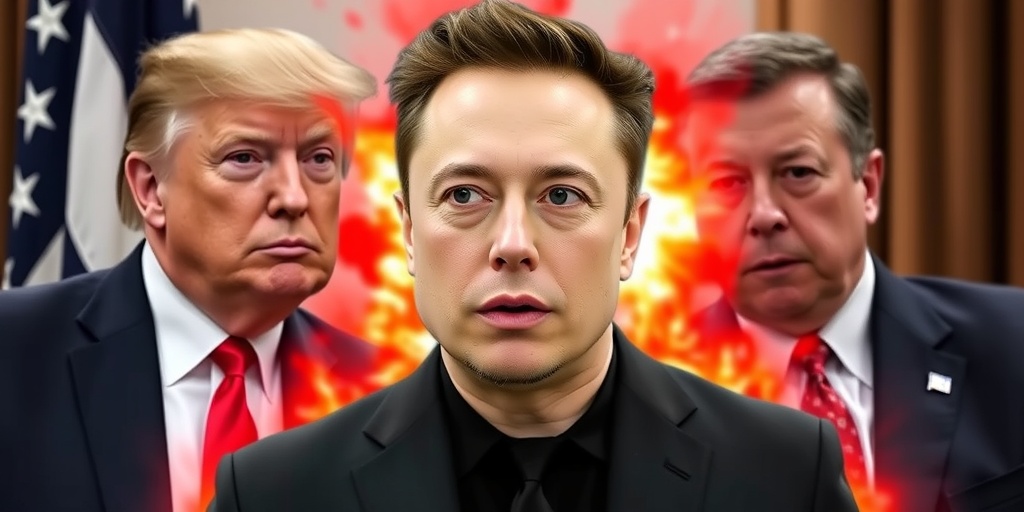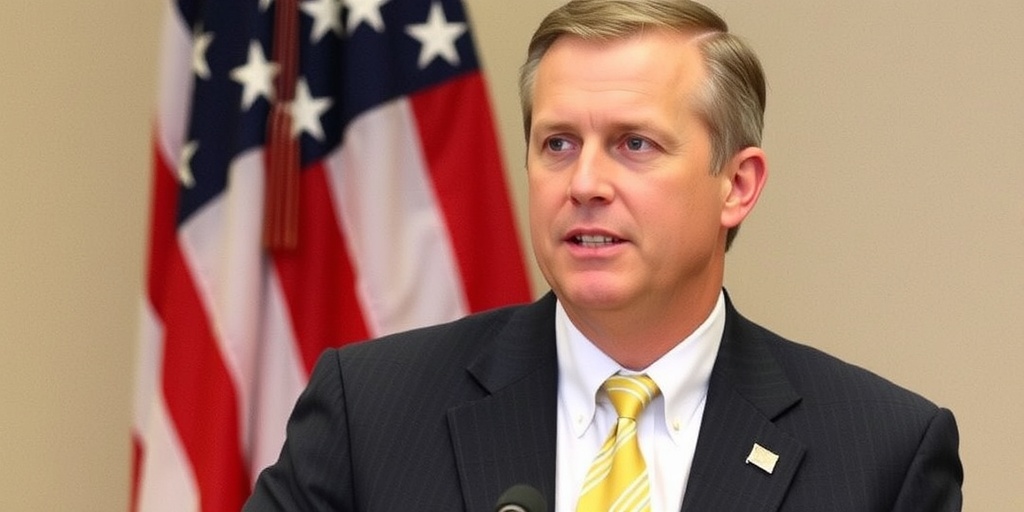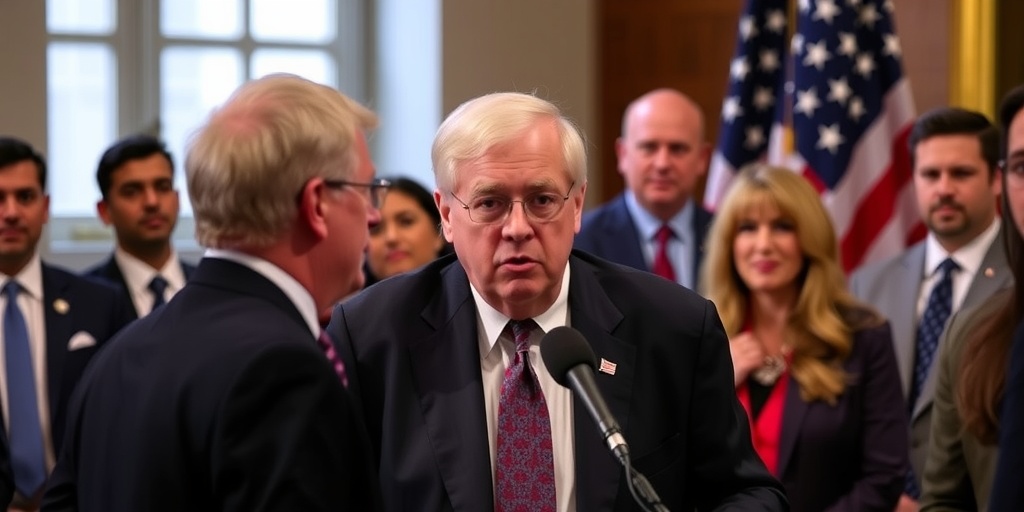Now Reading: Auto Sales Soar Ahead of Trump’s Tariffs
-
01
Auto Sales Soar Ahead of Trump’s Tariffs
Auto Sales Soar Ahead of Trump’s Tariffs

Title: Auto Industry Faces Surge in Sales Amid Imminent Tariffs
In an unexpected turn of events, the auto industry experienced a significant increase in sales during March, as buyers rushed to dealerships to finalize their purchases ahead of President Trump’s impending auto tariffs. Several automakers reported substantial gains, with many attributing the uptick in sales to consumer urgency before the potential price hikes that could add thousands of dollars to vehicle prices.
Randy Parker, the CEO of Hyundai Motor North America, expressed optimism about the recent sales surge, highlighting that the past weekend marked "by far the best weekend I’ve seen in a very long time." Hyundai reported a remarkable 13 percent increase in sales for March when compared to the same month last year. This surge demonstrates consumer eagerness to secure vehicles at current prices before the tariffs take effect.
Ford Motor Company also reported positive sales figures, announcing a 19 percent increase in March sales at its dealerships. However, the company noted a slight overall decline in sales during the first quarter, with total vehicle sales falling by 1 percent to approximately 500,000 units. This decrease was largely attributed to a drop in sales to fleet customers, a trend that has raised concerns for the automaker.
General Motors (G.M.) did not disclose specific sales figures for March but indicated that its overall sales for the first quarter saw a significant increase of 17 percent year-over-year, totaling 693,000 vehicles sold. This robust performance reflects a growing consumer interest in both traditional models and more innovative, eco-friendly options.
In a recent announcement, President Trump revealed plans to impose a substantial 25 percent tariff on imported vehicles starting Thursday, with additional tariffs on imported auto parts set to take effect on May 3. This decision has sent shockwaves through the auto industry, with analysts predicting that these tariffs could force manufacturers to raise the prices of certain models by over $10,000 to offset the new costs. With many vehicles produced in the U.S. containing foreign-made parts, the potential for price hikes looms large.
Despite these challenges, there has been a noticeable increase in sales of electric vehicles and hybrids in the market. General Motors reported a nearly doubling of its sales for battery-powered vehicles, reaching 32,000 units sold, largely due to the availability of the electric Equinox SUV. With a starting price of around $35,000, the Equinox is positioned as one of the most affordable electric options available to American consumers.
Ford has also seen positive trends in the electric and hybrid vehicle segments, with a 33 percent increase in hybrid sales and a 12 percent rise in sales of electric models like the Mustang Mach-E. However, traditional vehicles powered by internal combustion engines have faced a decline, with sales dipping by 5 percent during the same period.
Hyundai reported impressive numbers as well, with hybrid sales soaring by 68 percent and pure electric vehicle sales increasing by 3 percent. This trend highlights a broader shift in consumer preferences as more buyers gravitate towards environmentally friendly options.
In addressing the potential impact of the tariffs on pricing, Randy Parker, CEO of Hyundai, noted that while the company has yet to make definitive decisions, there is considerable uncertainty regarding how the new levies would affect pricing strategies. Hyundai, along with its sibling automaker Kia, has manufacturing facilities in the U.S., particularly in Georgia and Alabama, but also relies on importing a significant number of vehicles from South Korea.
As the deadline for the tariffs approaches, Parker urged consumers not to delay their purchasing decisions. "Don’t wait to buy tomorrow what you can buy today," he advised, hinting at the urgency felt by both consumers and manufacturers as they navigate the uncertain landscape of potential price increases.
In summary, the auto industry is currently experiencing a surge in sales largely fueled by consumer responses to anticipated tariffs. While automakers celebrate increasing sales figures, they also face challenging decisions in the coming weeks regarding pricing and potential adjustments to their product offerings in response to the evolving economic landscape. With the first quarter of 2025 nearing its conclusion, all eyes will be on how these developments unfold and what impact they will have on the future of the American auto market.
Stay Informed With the Latest & Most Important News
Previous Post
Next Post
-
 01New technology breakthrough has everyone talking right now
01New technology breakthrough has everyone talking right now -
 02Unbelievable life hack everyone needs to try today
02Unbelievable life hack everyone needs to try today -
 03Fascinating discovery found buried deep beneath the ocean
03Fascinating discovery found buried deep beneath the ocean -
 04Man invents genius device that solves everyday problems
04Man invents genius device that solves everyday problems -
 05Shocking discovery that changes what we know forever
05Shocking discovery that changes what we know forever -
 06Internet goes wild over celebrity’s unexpected fashion choice
06Internet goes wild over celebrity’s unexpected fashion choice -
 07Rare animal sighting stuns scientists and wildlife lovers
07Rare animal sighting stuns scientists and wildlife lovers





















